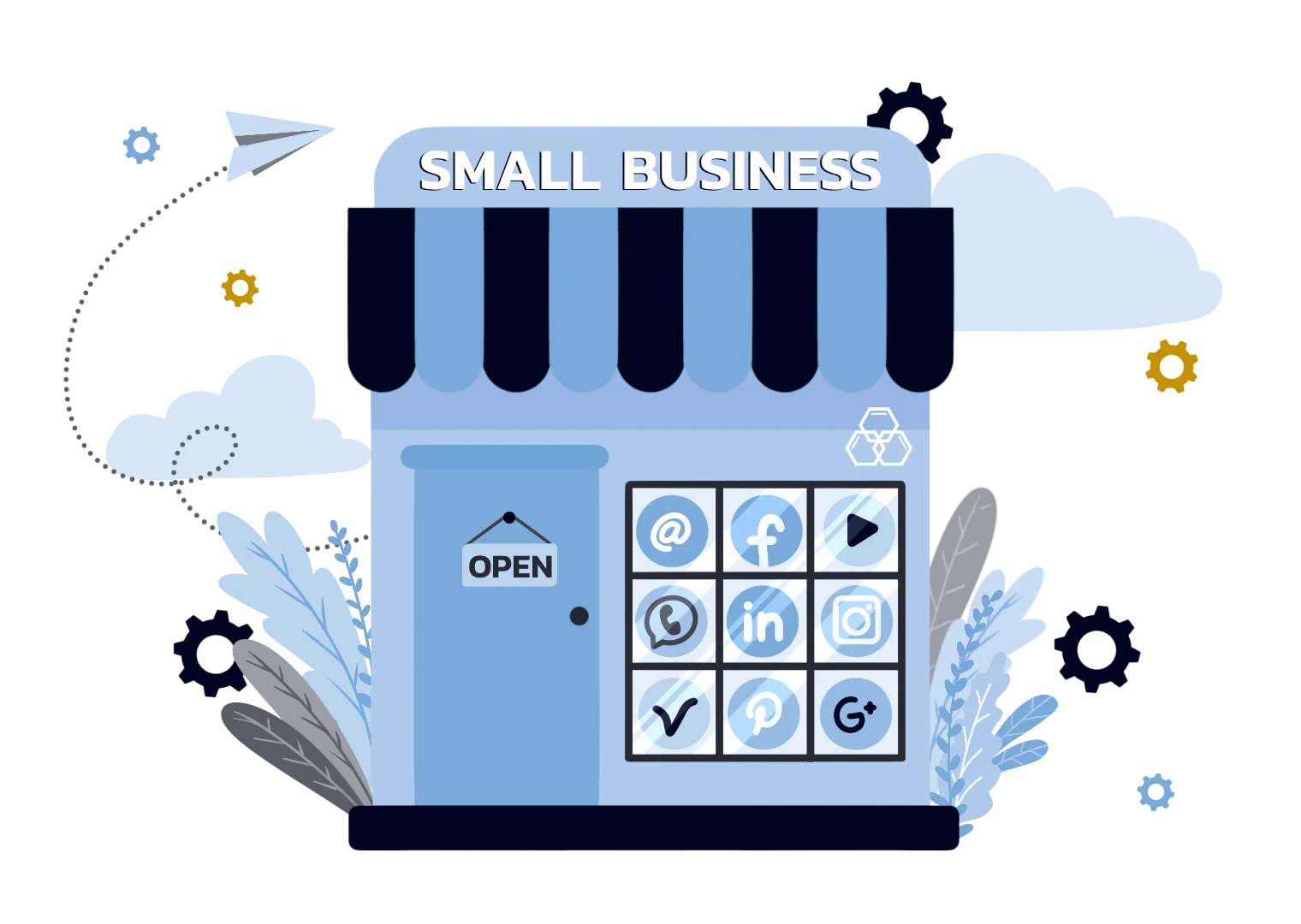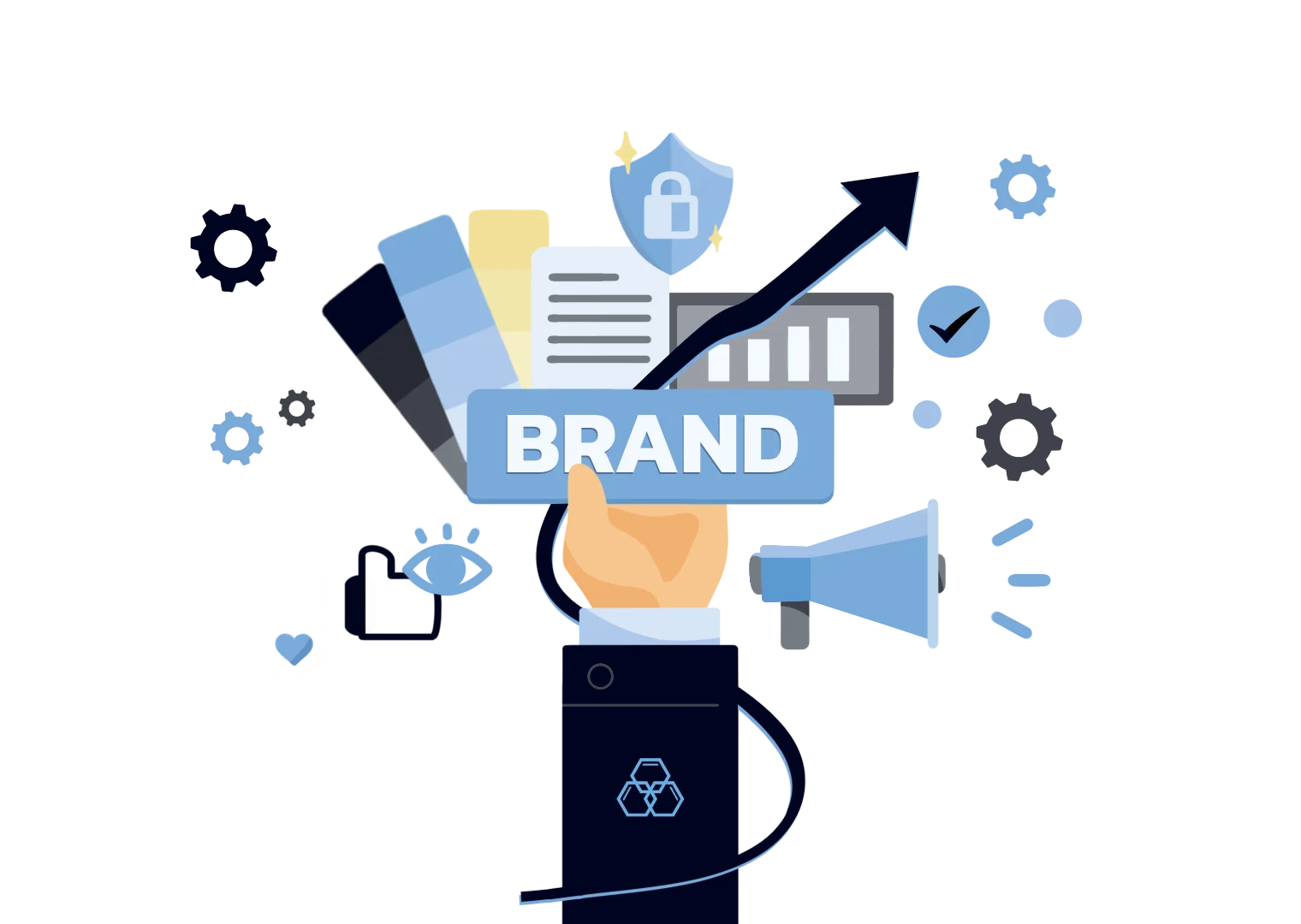A lot of people think about advertising as a way to get their business noticed, but that's only scratching the surface. And there are many different options for small business owners looking to advertise and raise their overall digital brand awareness.
Some of these local advertising tactics sees results immediately, while others, such as SEO, may take up to a year to fully develop their true ROI.
In this article, we will explore some of the most popular and essential places for small businesses to advertise and increase brand awareness. We will also talk about how the internet revolutionized the way advertising is done, and how to take this as an opportunity.
What Makes Local Advertising Different?
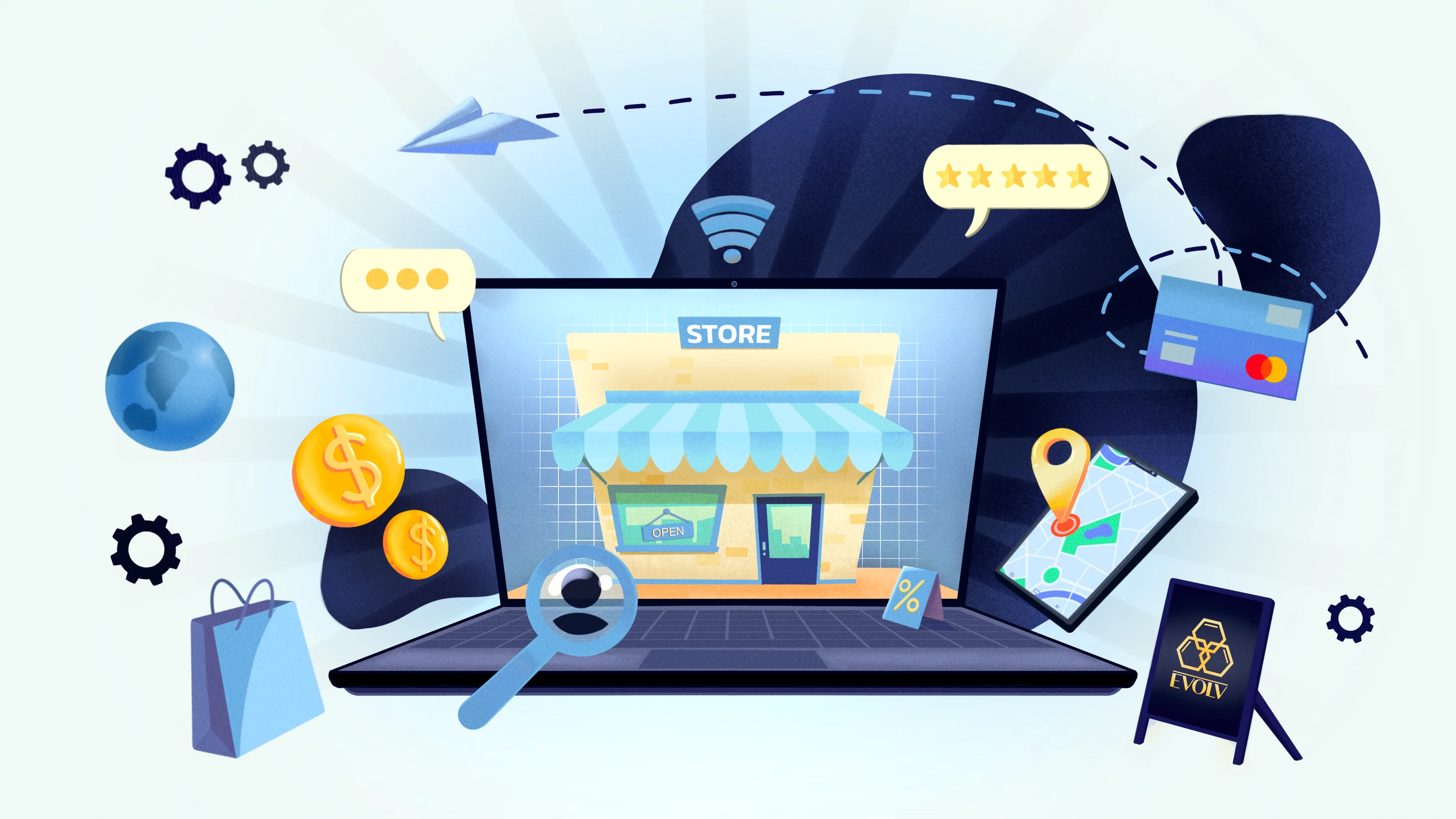
Local advertising isn’t about reaching anyone; it’s reaching the right people in your community. Unlike broad national campaigns, local advertising focusing to target potential customers who are more likely to visit your store, book your services, or spread word-of-mouth recommendations within your area.
Here’s what sets local advertising apart:
- Geographic Targeting Is Essential - You're not aiming for global reach. Local advertising thrives on precision, whether that’s through a neighborhood flyer, a Google Map listing, or geo-targeted social ads.
- Personal Connection Wins - People are more responsive to businesses that feel part of their community. Whether sponsoring an event or sharing local community news on social media, familiarity builds trust.
- Smaller Budgets, Higher Efficiency - Unlike major national brands, local businesses often operate with lean budgets. Local channels, like community papers, local Facebook groups, or small-scale events, offer affordable yet high-impact visibility.
- Customer Behavior is Location-Based - People searching “coffee shop near me” or “best hair salon in [city]” are ready to buy. Local advertising helps you show up when and where it matters.
Why Advertising Matters for Local Businesses?

78% of local mobile searches lead to an in-store purchase within 24 hours. So no matter how good your product or service is, if people don’t know you exist, they can’t buy from you. Advertising puts your business on the radar and keeps you top-of-mind when customers are ready to make a decision.
Here’s why:
1. It Puts You on the Map
Whether you're a new café, a dental clinic, or a home repair service, customers won’t visit if they don’t know you exist. Local advertising—especially via Google Ads or Google Business Profile—ensures your business appears in “near me” searches, maps, and local directories. The more visible you are, the more likely customers are to choose you over competitors.
2. It Drives Actionable Results Fast
Good advertising doesn’t just create brand awareness—it drives real action. Whether it’s a call, a website visit, or a walk-in, well-targeted ads motivate nearby customers to take the next step.
- Search ads can trigger phone calls directly from mobile users.
- Social ads can promote limited-time offers or highlight 5-star reviews.
- Offline ads like flyers or banners can boost turnout for local events or store openings.
3. It Builds Trust in a Crowded Market
Trust is a major currency in local business. When people see your business featured consistently—online, in local papers, or even at community events—they start to associate your brand with reliability and professionalism.
- Branded visuals, clean messaging, and testimonials in ads show you take your business seriously.
- Regular visibility implies stability and reputation.
4. It Helps You Outshine Local Competition
If your competitors are advertising and you’re not, you’re already a step behind. Even if you offer better products or services, customers will go with other local business if they recognize them first.
- You can use advertising to highlight what makes you different—affordable pricing, faster service, or glowing customer feedback.
- Running promotions or new service announcements gives you an edge when customers are deciding.
5. It Fuels Sustainable Business Growth
The ultimate goal of any business is growth—and advertising plays a major role in scaling up. When used consistently, advertising:
- Builds brand recognition over time
- Attracts repeat customers
- Increases lifetime customer value
- Enables you to test new products or services
And perhaps most importantly: advertising is measurable. You can track which channels, messages, or campaigns bring the best results—and reinvest in what works.
Ask Yourself These Before Advertising to Local Customers
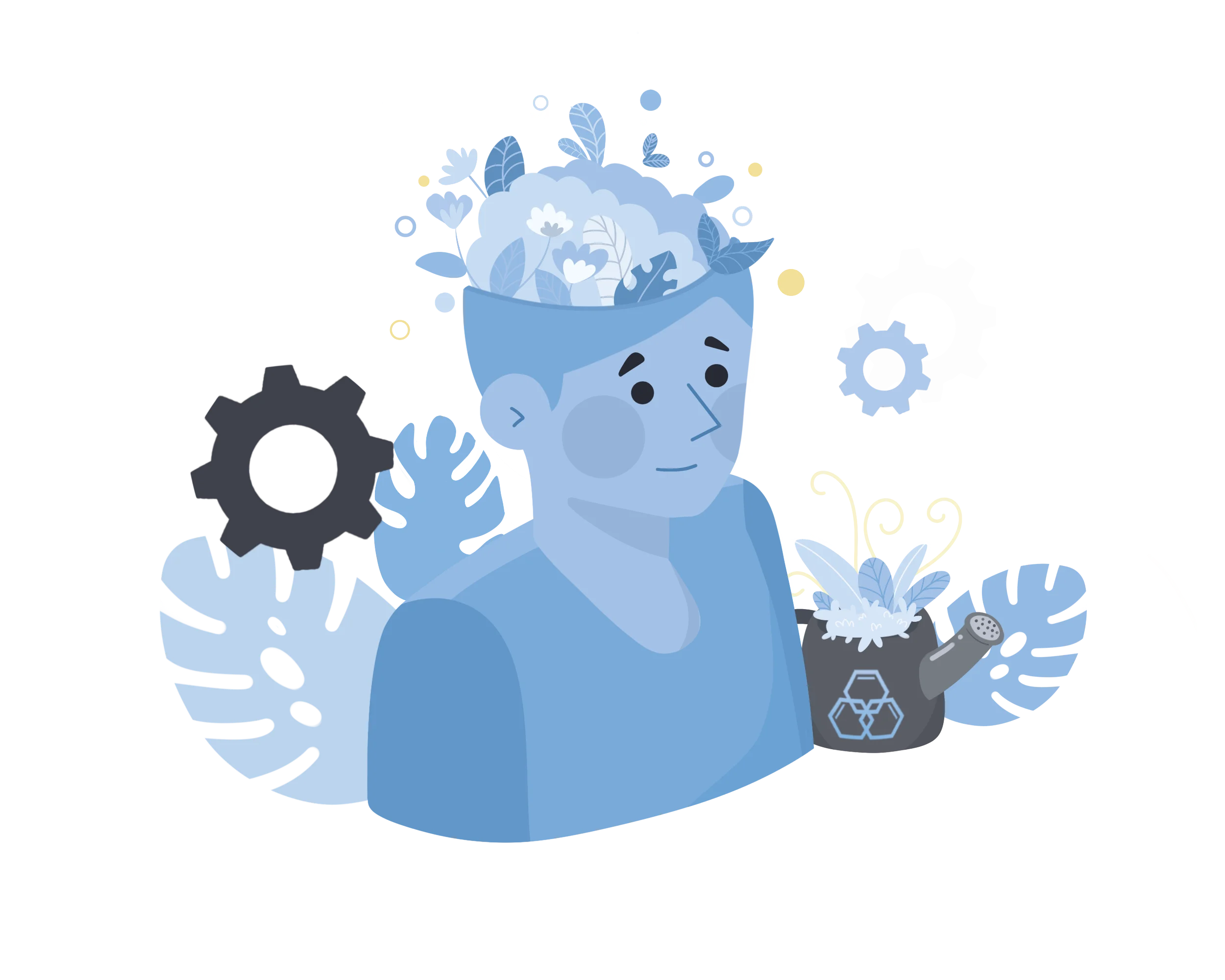
1. Do You Know your Goals and Objectives?
Emphasize what exactly do you actually want your advertising to achieve:
- Is it more foot traffic?
- More phone calls or bookings?
- Online sales or sign-ups?
- Greater local brand recognition?
Having a clearly defined goal makes it easier to choose the right platform, set the right message, and measure your results. Think of it like this: if your advertising worked perfectly, what would your ideal customer be doing right now? That’s your benchmark.
2. Do You Understand Your target audience?
This is one of the most common blind spots for small businesses. Many skip this step, assuming their product or service is “for everyone.” But successful advertising speaks directly to someone—not just anyone.
- Who is your target market?
- What are their interests, needs, or pain points?
- Where do they spend their time online and offline?
The more specific you are, the better your ads will perform. A well-defined audience allows you to craft offers and messaging that resonate.
3. Have You Optimized your Website?
Businesses that do not have a website could lose up to 50% of their potential local customers and 100% of their digital customers. In the digital age, your website is your storefront, often the first and most lasting impression local consumers will have. And yet, many small businesses either don’t have one or have a site that isn’t optimized for user experience or local search.
Here’s why this matters:
- A strong website can convert curious visitors into paying new customers.
- Without one, you could lose up to 50% of local prospects, and 100% of your digital leads.
- People search online first, even when looking for local businesses—they don’t drive around aimlessly anymore.
Your website should be mobile-friendly, easy to navigate, a clear local landing page, and aligned with your goals (e.g., clear calls-to-action, booking forms, maps). Pair it with a basic local SEO strategy and you’ll be ahead of many competitors.
4. Have you Set Up your Analytics Account?
If you're not tracking your website performance, you’re flying blind.
Analytics tells you:
- Where your visitors come from (Google, social media, direct traffic)
- What pages they view—and how long they stay
- Whether your ads are actually converting
Tools like Google Analytics, Google Search Console, and Meta Pixel (for Facebook/Instagram ads) provide a treasure trove of data. Even if you don’t analyze it daily, having it installed means you can start learning what works and what doesn’t.
How to Advertise a Local Business Online
Whether you're running a bakery, law firm, or salon, combining the best of both worlds allows you to connect with your audience at every touchpoint. From content creation to event sponsorships and even print media, here’s how to reach more people in your area and drive them to your business.
Blog Content Marketing

A strong digital presence often starts with content, and blog marketing is a proven way to build visibility and credibility. By publishing helpful, locally focused blog posts, your website becomes more discoverable on search engines and more engaging for visitors.
For example, writing about seasonal tips, local trends, or “how-to” guides relevant to your services positions you as both knowledgeable and community-aware. Over time, this content also becomes a valuable resource you can link to in emails, social media, or even printed brochures.
Search Engine Ads

Once your content starts gaining traction, you can increase visibility further with search engine marketing. Platforms like Google Ads place your business right at the top of local search results when people need you most — whether they’re searching for “pizza delivery near me” or “emergency locksmith [city].”
Google local services ads work instantly, unlike blog posts, which take time to rank. By targeting specific locations, optimizing keywords, and enabling features like call buttons or directions, you ensure you're reaching high-intent customers at the right moment.
Niche and Directory Sites
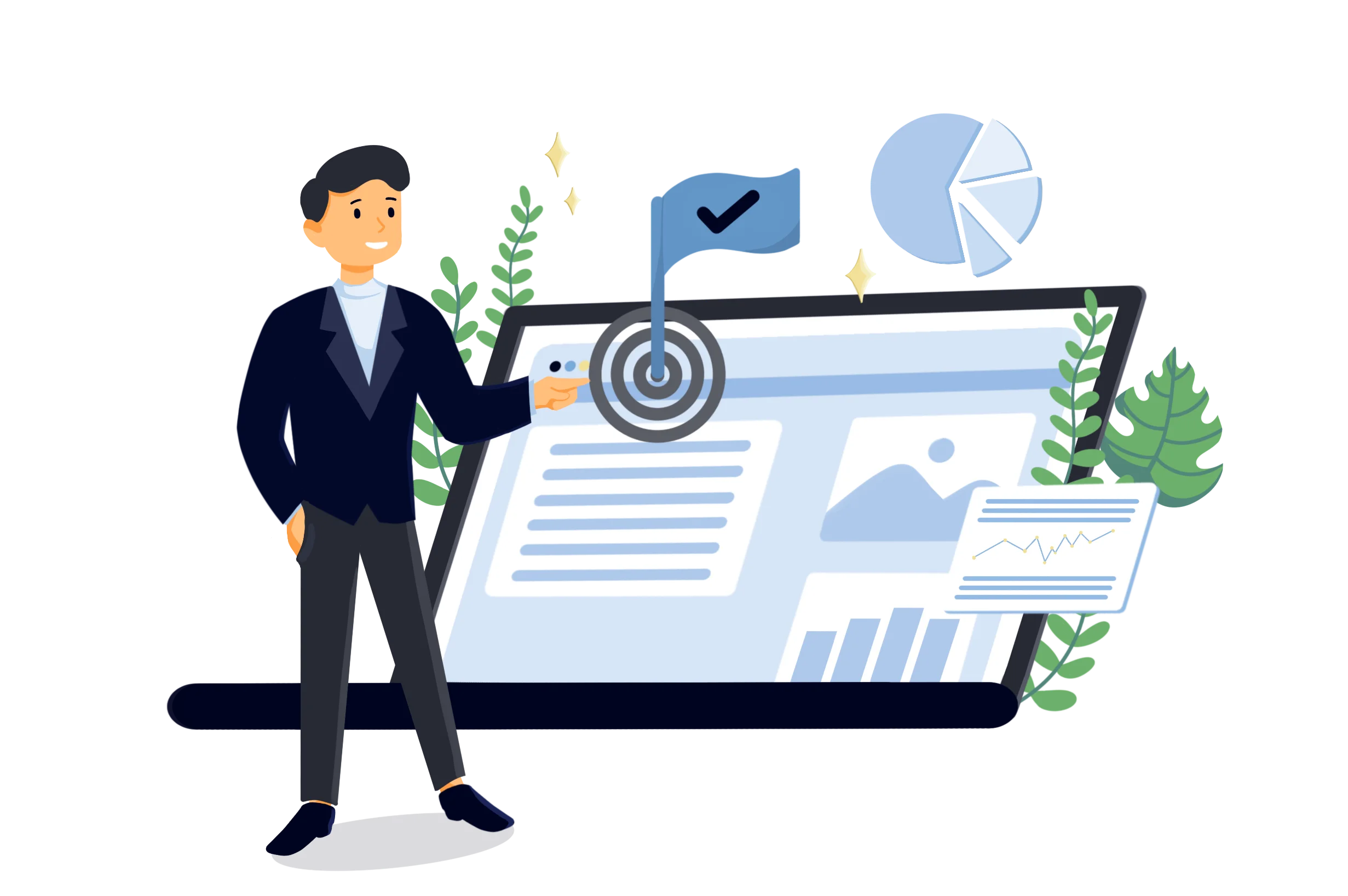
Alongside Google and your own website, third-party platforms like Yelp, TripAdvisor, and local listings are essential to a well-rounded online presence. These sites often rank highly in search results and are trusted by users seeking quick comparisons and reliable reviews.
By maintaining a complete and up-to-date listing — including hours, photos, and customer feedback — you increase your visibility and credibility. Some directories also offer paid promotions to highlight your listing or run hyper-targeted ads.
Email Marketing

Once potential customers know who you are, keeping them engaged becomes key, and email is still one of the most powerful tools for that. Localized email campaigns can help you announce seasonal offers, share helpful tips, or promote events and new services.
Because you control the content and delivery, emails give you a direct and personal line to your audience. Mentioning local landmarks, tailoring offers by neighborhood, or referencing recent community events helps reinforce your presence and relevance.
Creating your own email signature also helps you shape brand identity and personality.
Hyperlocal Social Media Ads

Social media advertising takes things a step further by letting you reach local users based on their precise location, habits, or interests. Whether you’re running a local Facebook advertising, targeting people within a 3-mile radius or posting Instagram Stories featuring your street or neighborhood, hyperlocal campaigns feel more personal and timely.
When your content references familiar places or local issues, it resonates more deeply, and that familiarity drives trust and conversions.
Local Influencer Collaborations
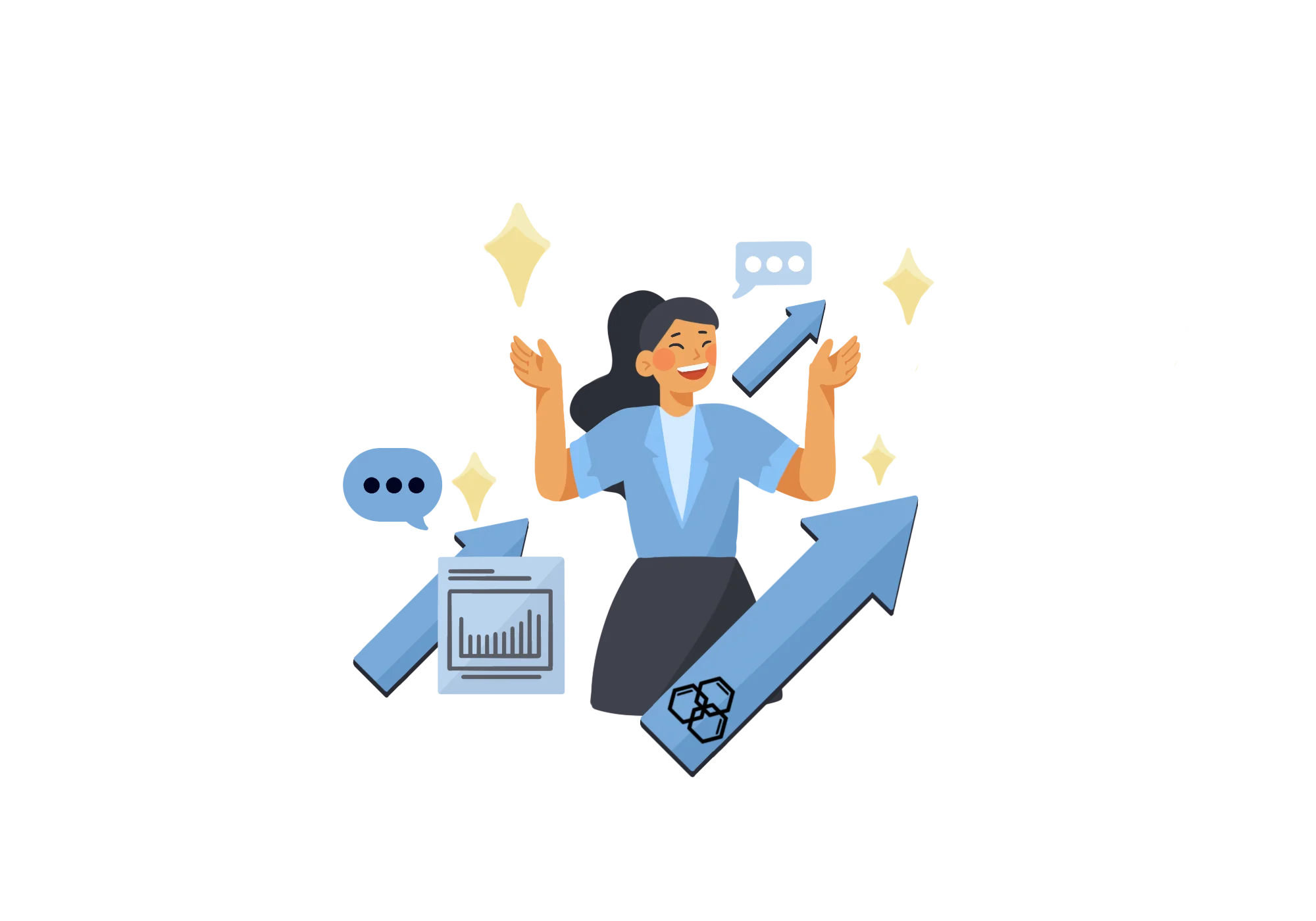
Another effective way to build local credibility is through influencer partnerships. Working with micro-creators who are active in your community can quickly spread awareness and build trust. These influencers often have dedicated followings who value their recommendations, especially when the content feels authentic.
Whether it’s a TikTok tour of your restaurant or an Instagram story about your latest offer, these partnerships feel more like word-of-mouth than traditional ads.
Video Advertising (YouTube and TikTok)

Online audiences increasingly prefer video content, and when localized, it becomes even more powerful. Platforms like YouTube and TikTok allow you to create short videos tailored to people in your area. You could showcase your store, introduce your team, or highlight a customer success story.
Geo-targeting tools ensure these videos appear only to viewers nearby, helping you stretch your ad spend while still making a big impact.
Print Media with a Digital Twist
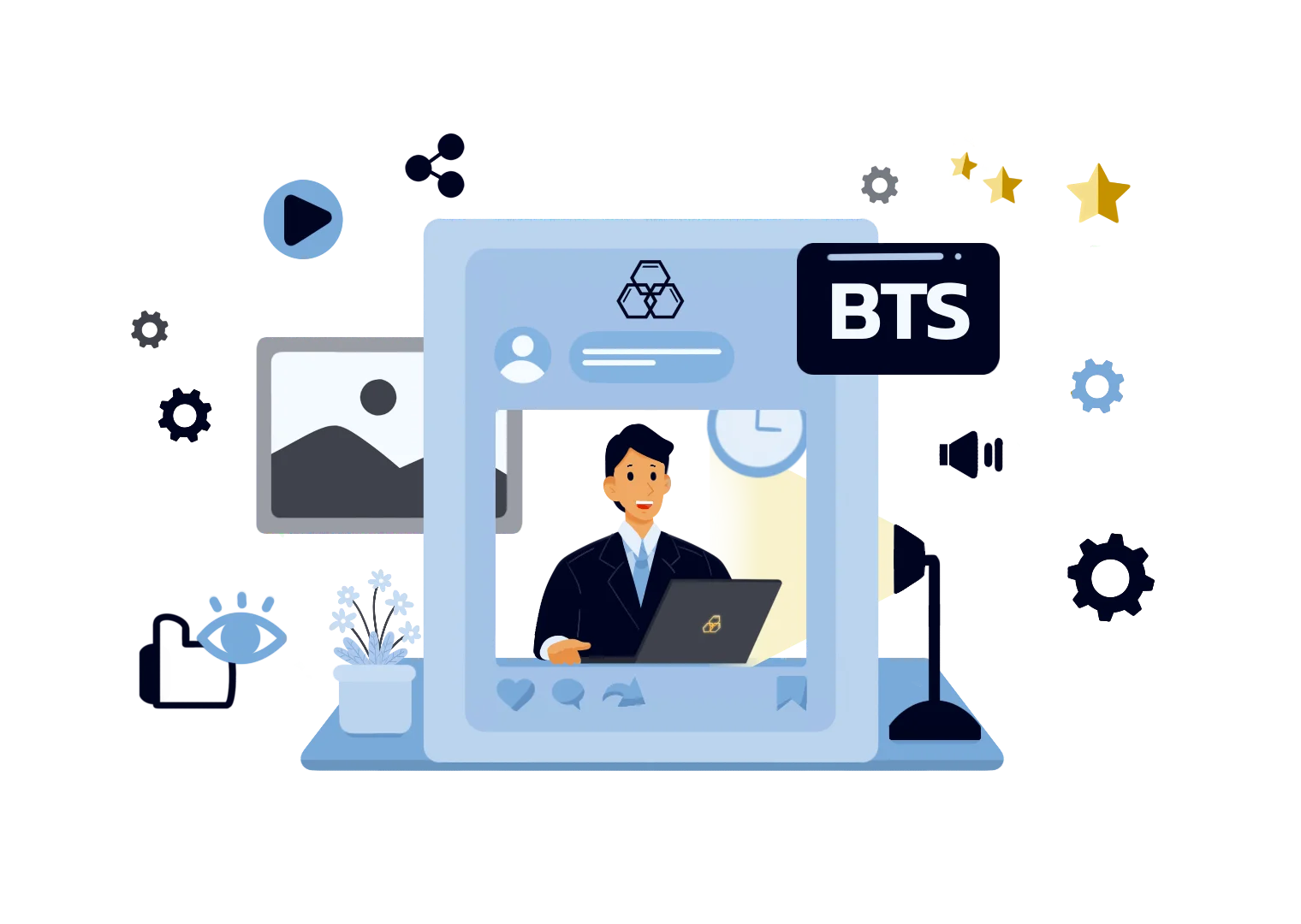
While digital tools dominate, traditional print media still plays a key role in local advertising, especially when used in tandem with online efforts. Flyers, direct mail campaign, local newspaper ads, community newsletters, and postcards can grab attention in ways digital sometimes can’t.
The trick is to bridge the offline and online experience. Include QR codes that link to your website, offer online-only discounts in printed materials, or promote social media handles people can follow for updates. This integration encourages offline readers to continue the journey online.
Sponsoring Local Events

Participating in or sponsoring local events is another highly effective way to blend real-world visibility with online growth. Whether it’s a weekend fair, charity run, or school event, your presence in the community gives a business name a human face.
Setting up a booth, handing out samples, or hosting a giveaway can drive in-person interactions, and when promoted through your social media channels, email campaigns, and blog posts, the impact extends well beyond the event itself. Photos and videos taken during these events also provide excellent content for future promotions.
Emerging Technologies: AR, VR, and AI

Finally, it’s worth looking at where advertising is headed. Augmented Reality (AR) allows users to interact with your product or service digitally, for instance, previewing how a new pair of glasses looks on their face before visiting your store. Virtual Reality (VR) offers immersive experiences, like a virtual tour of your gym or office.
Meanwhile, AI are enabling highly personalized ad targeting, helping you serve specific offers to users based on their behavior, location, and preferences. These tools may sound advanced, but many are already available through platforms you’re likely using today.
FAQs
How do I advertise my small local business?
Start by claiming your Google Business Profile, then focus on local SEO, social media advertising, and community engagement (e.g., events or sponsorships). Combine online ads with offline strategies like flyers or local partnerships for wider reach.
What is the best advertising for a small business?
The best advertising is targeted and cost-effective. For most small businesses, a mix of Google Local Ads, Facebook/Instagram Ads, and local directory listings works best. Test and track what brings in actual customers.
How to use social media to advertise local business?
Post consistently with content your local audience cares about—like promos, reviews, behind-the-scenes, or community news. Use location tags, join local groups, and run geo-targeted ads to increase visibility in your area.
How to do free marketing?
Leverage word-of-mouth, Google Business, social media content, online reviews, and local partnerships. Hosting or joining community events, optimizing your website for local search, and sharing user-generated content are all effective and free.
How to write a catchy advertisement?
Keep it short, specific, and benefit-driven. Use strong action words and highlight what makes your offer unique. Include a call-to-action and, if local, mention your location or neighborhood to build relevance.
Example: “Fresh-baked bread daily – Visit us in Ann Arbor for 10% off your first loaf!”
Targeting the Right Customers is key
business owners need to consider effective local marketing strategy they are going to reach out to more local customers; by doing so, businesses cannot only save money but will also increase the chances of creating loyal clients.
There are different ways of advertising with the help of social media, but it's very important for local businesses to create an image or an identity that is specific for their local area/city/state so that it doesn't look like they are targeting everyone. Localization is key when it comes to effective online marketing strategies.
For example, if you have a brick-and-mortar store location in town where people come by every day on their lunch break or after school then traditional methods like radio commercials might be more effective than new social media platforms like local Facebook Ads.
But suppose most of your existing customers live outside of the community or they don’t visit often. In that case, Facebook ads may yield better results because they allow people who would otherwise never see an ad about your business to encounter one. There is no one method that applies to all equally. It’s all contingent on your goals.
Local Business Advertising: Why Working with Evolv Matters
For many small local business owners, managing day-to-day operations is already a full-time job. Adding marketing strategy, ad campaigns, content creation, and brand development on top of that can quickly become overwhelming. That’s where Evolv can make all the difference.
We brings structure, strategy, and creativity to your business. Evolv helps you define a clear brand identity that resonates with your community, create campaigns that speak to local clients, and ensure your budget are spent efficiently.
And more importantly, agencies offer an outside perspective. Our experience with local businesses but big and small allows to spot opportunities you missed, uncover strengths, and apply proven strategies tailored to your industry and location.
Let us know how Evolv can help you!



